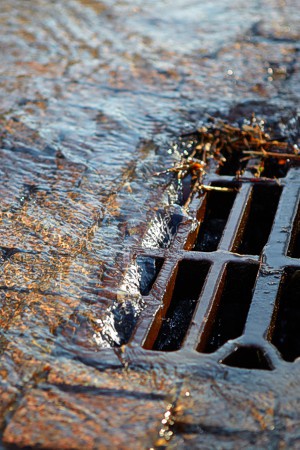 What Is MS4?
What Is MS4?
Untreated or uncontrolled storm water runoff is the number one cause of impairment in our local waterways. Polluted runoff is often transported through municipal drainage systems until it eventually discharges into streams, lakes, and rivers untreated.
An MS4, or Municipal Separate Storm Sewer System, is comprised of drainage systems, including streets, catch basins, curbs, gutters, ditches, man-made channels and storm pipes, owned by a state, county, city, town, township, borough or other public entity.
The National Pollutant Discharge Elimination System (NPDES) storm water Phase II regulations require permit coverage for storm water discharges from MS4s, mainly those located in urbanized areas.
Therefore, most Townships and Boroughs are required to comply with the MS4 Program.
What can you do to help?
Preventing pollution from occurring is a great first step. This can be achieved by considering all the little things you do each day that has effect on the environment and then seek ways to do them in an environmentally friendly way. Consider the following:
Car Washing
Many people don't realize that washing their vehicle can be a form of pollution. If you wash your car on your driveway or other impervious surface it could enter the stormwater system or local waterways. This may result in soap, scum, and oily grit polluting our waterways. To reduce the impact, wash your car on gravel, grass, or other permeable surfaces away from stormwater facilities or open waterways. Better yet, go to a local car wash. Car washes are required to filter and clean their water before it is discharged.
Pet Waste
Pet waste can be a major source of bacteria and excess nutrients in local waters. When walking your pet, pick up the waste and dispose of it properly. Leaving pet waste on the ground increases public health risks by allowing harmful bacteria and nutrients to wash into the storm drain and eventually into local water bodies.
Fertilizer
Excess fertilizers and pesticides applied to lawns and gardens wash off and can pollute streams. Use pesticides and fertilizers in accordance with the manufacturer's recommended amount. Never leave yard waste in the street and don't sweep it into storm drains or streams.
Construction
Construction activities can be a big source of stormwater contamination if runoff is not properly controlled. Pollutants such as sediment, debris, and chemicals could easily be picked up in stormwater runoff if you or your contractor are not careful. It is easier to protect your stormwater features and waterways than to replace, repair, or clean them if damaged due to improper site maintenance. Be sure to:
Vehicle Maintenance
Keeping up with vehicle maintenance helps protect our waterways. When a vehicle leaks oil, antifreeze, brake fluid, or other liquids they lay on the surface of the road. When it rains or snow melts, the runoff picks up the pollutants and carries it into our waterways. Never dump any chemical out on the road, your driveway, or into a stormwater system. Clean up spills immediately with kitty litter or other absorbent material and sweep it up for proper disposal.
Quick Reminders
Do your part to make our waters clean for aquatic life to live in and for us to enjoy by following these quick steps:
3-26-18: Public participation is an essential part of the Pollution Reduction Plan (PRP) because it enhances buy-in from residents, business owners, and landowners that may have an impact on pollution discharges, can uncover missing elements or errors in calculations, and builds cooperative partnerships among the Township and other entities. Click here to see the PRP.
